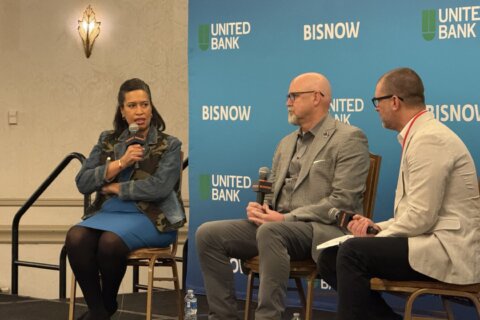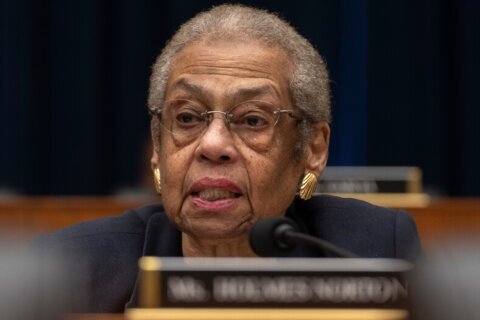The D.C. Council on Tuesday voted to temporarily keep in place protections against debt collection, evictions and utility shutoffs that were instituted during the COVID-19 pandemic.
The protections would have expired soon after the end of the District’s public health emergency that is set to end July 25; on Monday, D.C. Council Chair Phil Mendelson confirmed that it will not be extended.
The District’s debt-collection law was written in 1971, Mendelson said. That means it doesn’t cover modern techniques, such as voicemail, texts and email, and it did not cover credit card debt or medical debt, he said — the latter of which has reportedly exploded in the District and nationwide in the wake of the pandemic.
The new bill, which still needs the mayor’s signature, won’t let collectors call a particular customer more than three times in a seven-day period (a protection that already exists but would be expanded to all kinds of debt), or communicate any information about a person’s debt to their employers or family members.
The bill would also eliminate the ability of creditors to have consumers jailed for contempt of court if they fail to appear for a proceeding, would prohibit collectors from threatening to take actions that they can’t actually take, or threatening the descendants of a debtor who has died.
D.C. Attorney General Karl Racine, who along with Mendelson put forward the legislation, said in a statement, “By passing our urgently needed legislation, the Council is making sure District residents will be protected from abusive, unfair, and misleading debt collection practices during this critical time.”
Eviction, utility protections
The council also voted to adopt a bill to protect renters and utility customers who are still experiencing economic hardships, while providing a time frame for winding down eviction protections.
While landlords can issue notices of nonpayment of rent immediately upon the end of the public health emergency, eviction proceedings can’t start until Oct. 12; court summonses must be issued with 30 days’ notice (up from the current seven).
Landlords must give notices of how much rent is owed, and they have to notify tenants that they can apply for help through the STAY DC program, which provides funding for up to 12 months of past due rent and up to three months of future rent, as well as utility arrears, for tenants who meet federal eligibility and income requirements.
Landlords can also apply on behalf of tenants, with their consent, and tenants can’t be evicted if they have made applications within 60 days of getting the notice of back rent.
Rent increases will be prohibited until Dec. 31.
Utility companies can’t shut a customer off if they owe less than $600, if they’re keeping up with a payment plan or are receiving SNAP or TANF benefits.
While several council members had reservations about the bill, they said it was a step in the right direction, saying renters needed more time to apply for assistance.
“We are still a long way from an equitable exit ramp” for all residents from the effects of the pandemic,” Council Member Brianne Nadeau said.
Council Member Janeese Lewis George added that she had “real reservation about reopening the eviction process before STAY DC has a chance to work, and work well.” She said the backlog of applications to the program was at 16,000 and climbing each week.
Both bills are emergency measures and passed unanimously.
WTOP’s Will Vitka contributed to this report.
- Sign up for WTOP alerts
- Sign up for WTOP’s coronavirus email newsletter
- Latest coronavirus test results in DC, Maryland and Virginia
- Latest COVID-19 vaccination numbers in DC, Maryland and Virginia
Looking for more information? D.C., Maryland and Virginia are each releasing more data every day. Visit their official sites here: Virginia | Maryland | D.C.








